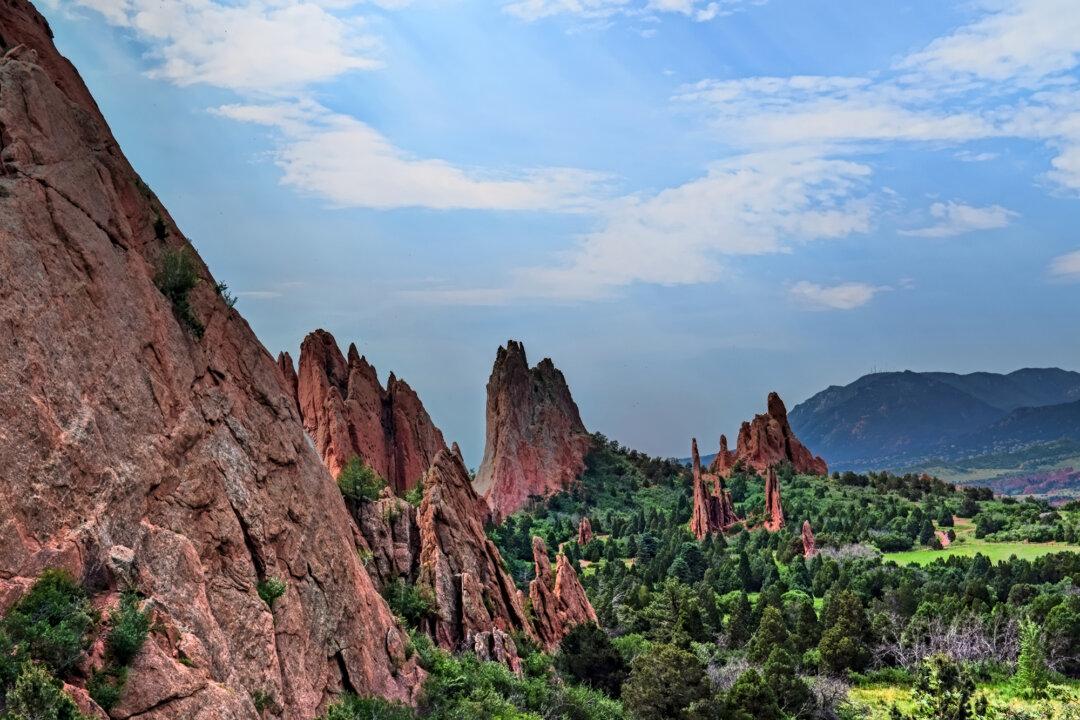Colorado Springs—Bret Tennis started working around Garden of the Gods 17 years ago.
“We used to say 1.2 million visitors a year when I started here,” said the park operations administrator. “Now we say over 4.5 million.”
The annual numbers are reportedly similar at Rocky Mountain National Park, where people can spread out across 265,807 acres.
In Garden of the Gods, they pack into 1,367 acres.
The vast majority come in the summer—tourists on vacation between Memorial Day and Labor Day. It’s been that way for as long as Stewart Green has been going to the red rock wonderland, since his 1960s childhood in Colorado Springs.
“But it wasn’t as bad as now,” he said. “The traffic is just terrible this time of year. ... It kind of feels like a carnival ride.”
It doesn’t have to feel that way.
That was the realization of Green, the prolific guidebook writer, from a recent work: “Hiking Garden of the Gods: 20 Loop Hikes.”
“I found that there really is a lot of places where you can go, when you leave the main paved trail, that Perkins Central Trail, and you can get away from people,” Green said.
Yes, come summer, our common role as locals in Garden of the Gods is “playing tour guide,” Tennis recognized. “Locals still come, especially when the family comes and visits.”
Yes, the crowds are bigger than ever in the park of global fame. “And for good reason,” Tennis said.
Are the crowds reason for us to turn away from our grandest, natural treasure? Amid the bustle, can we fall in love with the Garden all over again?
We asked for tips:
Starting Out
In the summer, parking lots inside the Garden fill up well before 9 a.m., Tennis said.
This leads to the obvious advice: “Go early,” said Scott Hente, president of Friends of Garden of the Gods. Also, if you can, go Tuesday or Wednesday, which seem to be the slower days of the week.
But even as a regular arriving not long after dawn, “I tend not to drive into the park,” Hente said. “I park on the periphery and walk in.”
That’s where the “overflow lot” comes in. That’s how Tennis and rangers refer to the large parking lot established five years ago at the corner of the main entrance along 30th Street and Gateway Road.
This summer at that intersection, a traffic circle has been established for cars coming in and out of the park. “It has done wonders to help with the flow of traffic,” Tennis said.
Translation: Maybe the main entrance is not as daunting as you’ve known it to be this time of year. The “overflow lot” is the way to go, Tennis said.
“’Overflow’ makes it sound misleading, because it’s a great parking lot,” he said. “And it’s just a half-mile (walk) on the Gateway Trail to get to the Central Garden.”
Or rather than proceed to the dramatic, busy core, consider going right or left on trails that can grant you longer loops around the perimeter of the park.
Green also likes to enter from Beckers Lane, a less-trafficked entry on the opposite end of the park between Manitou Avenue and the Trading Post. He takes his chances with the parking lot just up the road from the gift shop, the one numbered 16.
It’s not nearly as big as the “overflow lot.” But it’s bigger than most pull-offs in the park and starts Green on some of his favorite loops.






